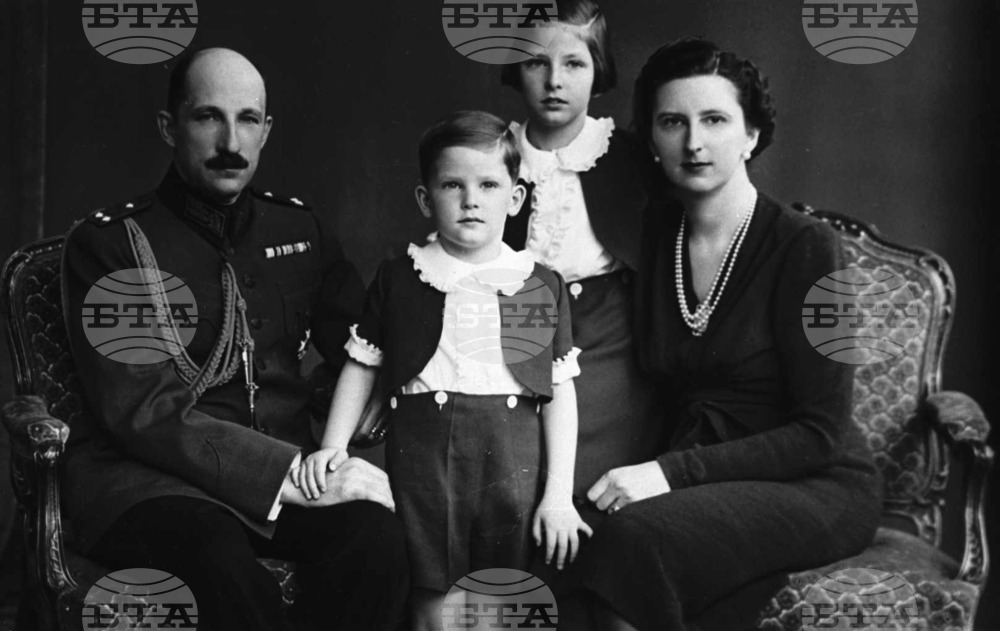site.btaUPDATED April 14, 1925: King Boris III Survives Assassination Attempt


One hundred years ago on Monday, a group of anarchists and members of the Bulgarian Communist Party (BCP) attempted to assassinate Bulgarian King Boris III on April 14, 1925. The attack came at a time of political unrest and clashes between royalists, communists, anarchists, and military factions in the darkest period of Bulgaria's interwar history.
The country emerged from World War I as defeated, politically unstable, burdened by heavy reparations and beset by widespread social discontent. The BCP and anarchist groups became increasingly active, often confronting the government.
The failed assassination took place in the Arabakonak Pass, a mountainous route between Sofia and Botevgrad (then Orhanie) (Northwestern Bulgaria). King Boris III was returning from a hunting trip in the Western Balkan Range, accompanied by Petar Kotev, the organizer of the royal hunts, Delcho Iliev, an entomologist at the Royal Museum, the aide-de-camp, Captain Nedelcho Stamatov, and their chauffeur. Just before reaching the pass, King Boris III’s vehicle was ambushed by five armed men.
In the attack and the ensuing shootout, Kotev was killed on the spot, Iliev was seriously wounded and later died, while Stamatov fired back, shielding the monarch.
In his biography of Boris III entitled Crown of Thorns (1987), Stephane Groueff writes: “Just before Araba Konak, the royal car passed an old bus, painfully huffing and puffing on the steep road. The first shot was heard. The bullet struck the hunter, killing him instantly. Several other shots followed, coming from both sides of the ambushed road. As the windshield shattered, the driver lost control. The car was headed toward the precipice when the king, leaning over the stunned chauffeur, grabbed the steering wheel, trying to avoid the cliff, while Captain Stamatov opened fire at the invisible assailants. Boris, an expert driver, managed somehow to control the careening car, but as it came to a halt, it hit a telegraph pole throwing its passengers onto the ground. King Boris ran through the gunfire in the direction of the bus, jumped on the driver’s seat and, seizing the steering wheel, turned the vehicle and drove full speed to Orhanie. In Orhanie, the king rushed to the barracks, collected a platoon of thirty soldiers and drove the bus back to the scene of the ambush. In a ditch near the car, Stamatov was still fighting off the assailants beside the bodies of his two dead companions. Under the command of the king, the soldiers chased the attackers, who disappeared in the mountain.”
There are two theories about the assailants' intentions. One suggests they aimed to kidnap Boris III and exchange him for political prisoners. The other claims the attackers intended to stop the vehicle without expecting that the king was inside. A century later, the full truth behind the plot remains unclear. In it Foreign Press Review bulletin, BTA monitored the broad coverage of the assassination attempt in the Western newspapers:
Vienna, April 16, 1925, Deutschösterreichische Tages-Zeitung: “The attack against King Boris shows us again with terrible clarity how undermined the soil in Bulgaria is. The aftermath of the World War has made it a fit object for Bolshevik propaganda, which is all the stronger because the moral resistance of a Balkan country is substantially weaker than that of the Central European countries.”
Manchester, April 16, 1925, The Manchester Guardian: “M. Zankoff, the Premier, apparently somewhat rashly, declared immediately after the attempt that it was the work of agrarian Communist conspirators. Perhaps the Vienna Bulgarian Minister is nearer the mark when he attributes the attack to common brigands who were unaware that King Boris was the occupant of the assailed car. The recent vehement persecution of both Communists and agrarians caused a rapid increase of outlawry in the country, the persecuted men often joining in robber bands to escape the harassing police.”
Hours after the assassination attempt at the Arabakonak Pass, General Konstantin Georgiev (Ret.) was assassinated in Sofia. Two days later, during his funeral, a bomb was detonated inside the St Nedelya Church in the deadliest terrorist act in Bulgaria’s history.
/LG/
news.modal.header
news.modal.text